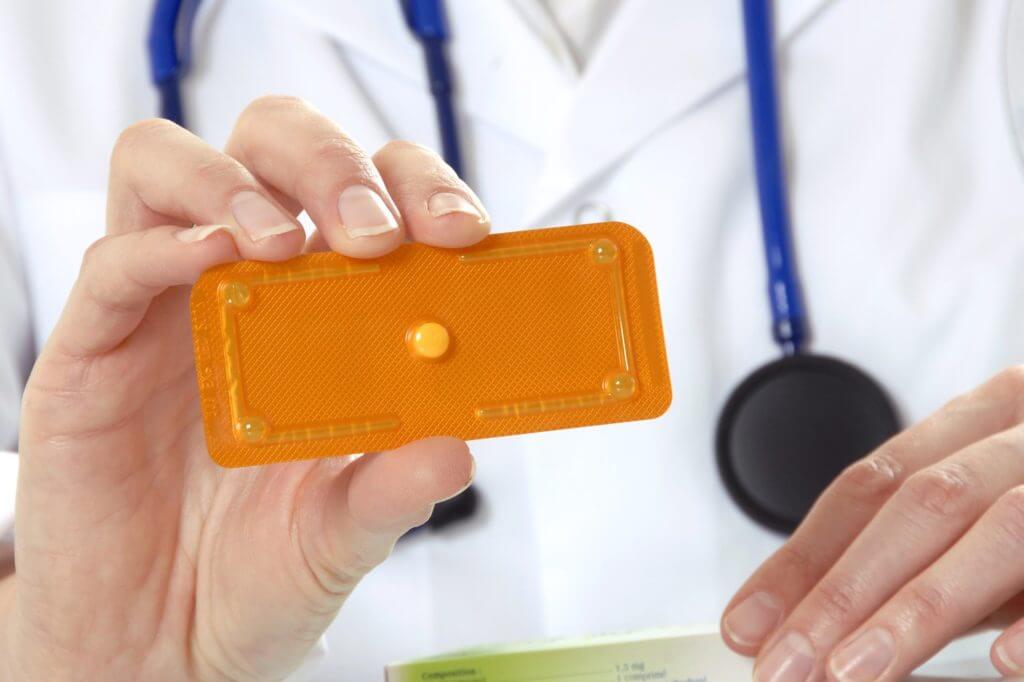Mirena vs. Weight Loss: What’s the Relation?

According to recent statistics, Mirena is one of the most popular birth control methods these days. However, its hormonal origin makes many women think that Mirena might provoke weight gain or loss while preventing pregnancy. So, what is the relation between Mirena and weight change? Let’s figure it out together by going through this article.
A SAFETY NOTE:
Mirena is a hormonal birth control intrauterine device that should be inserted into a patient’s body exclusively by a certified healthcare provider. In other words, it is a product exclusively for professional use.
What Is Mirena?
Mirena is a contraceptive method that effectively prevents unplanned pregnancy. More precisely, it is an intrauterine device (also known as an IUD) with a letter T-shape and a hormonal nature. Its working principle is based on the progestin hormone called levonorgestrel.
A SIDE NOTE:
When released into the human body, a synthetic hormone of progestin has the power to thicken the cervical mucus and, therefore, prevent the sperm from reaching the egg. It also dilutes the uterus lining and, therefore, partially suppresses ovulation. This way, progestin prevents a woman from getting pregnant.
It is also worth noting that the usage of a Mirena IUD is an exceptionally long-lasting birth control method. The intrauterine device might remain in the human body and, therefore, protect it from unwanted pregnancy for a time frame of up to five years (or even seven years in rare cases).
Moreover, preventing pregnancy by using a Mirena IUD gives a patient 99 percent effectiveness without requiring any effort. After having it inserted into the uterus, a patient does not need to worry about contraception on a daily basis.
Last but not least, a Mirena IUD oftentimes causes menstrual cycle redundancy. Minimizing a patient’s menstrual bleeding and making it less painful, the device positively affects those patients who have been suffering from heavy periods.
A SIDE NOTE:
The birth control effect of Mirena’s levonorgestrel-releasing intrauterine system is fully reversible. More precisely, a patient is expected to return to their full fertility shortly after the Mirena removal. Most women become capable of conceiving in a couple of months after stopping using the IUD.
How Does Mirena Work?
Mirena is a birth control IUD that works in a safe and effective way. It belongs to hormonal contraceptives that prevent pregnancy without causing any serious complications or health issues (such as heavy bleeding, hair loss, or other symptoms). Although potential side effects after the Mirena IUD insertion include slight hormonal changes and mood changes, they do not usually lead to any discomfort. It is also worth mentioning that these side effects do not happen immediately after a patient starts using the device but rather develop gradually.
A SIDE NOTE:
Within the first week after inserting the Mirena hormonal IUD, a patient might report feeling exhausted. Luckily, the energy levels return back to normal as soon as a patient’s body gets used to the hormones Mirena releases.
It is also worth mentioning that the usage of the Mirena IUD for planned parenthood does not require any lifestyle changes. Similar to other hormonal IUDs, it allows a patient to smoothly adjust to it and continue living their usual life without any need for a special diet, exercise, or a change in their routine habits.
A SIDE NOTE:
According to a great number of doctors, some patients are hesitating about starting using Mirena because they are afraid of the long-term effects it might have on their bodies. In such cases, non-hormonal IUDs (for instance, copper IUDs) might be suggested as an effective form of birth control.
Does Mirena Cause Weight Change?
There exists an assumption that significant weight changes belong to the most common side effects of the Mirena IUD. In other words, it is believed that birth control with the help of the device might cause a patient to gain weight or lose weight by changing their hormone levels.
A SIDE NOTE:
The usage of not only a Mirena IUD but also a copper IUD is believed to cause weight changes. At the same time, however, these beliefs can rarely be proved scientifically, as doctors suggest. Neither Mirena IUDs nor copper IUDs have weight changes on the list of their typical side effects.
Still, there is NO scientific evidence of the above-mentioned assumption. Even though some patients who have been using Mirena for birth control might gain weight or lose weight within a few months after inserting the intrauterine device, it is not a common side effect of it. Moreover, Mirena does not list weight gain or weight loss among the possible side effects it might cause.
A SIDE NOTE:
If a patient gains or loses a few pounds after starting using Mirena as their birth control method, it does not necessarily mean that weight gained or weight lost has any direct relation to the insertion of the intrauterine device. Namely, a change in weight after starting using Mirena might be a mere coincidence rather than one of the IUD’s side effects.
Final Words
All in all, the usage of the Mirena IUD is one of the most effective birth control methods offered by contemporary medicine these days. It is strongly beloved by numerous people worldwide, mainly because of its safety, effectiveness, duration of action, and other benefits. Moreover, Mirena does not usually cause any discomfort or serious side effects. Under normal circumstances, it causes neither weight gain nor weight loss. Thus, how about scheduling an appointment with your OB-GYN and discussing the possibility of using the Mirena IUD yourself?
Post-Scriptum
If you are a certified healthcare provider who is currently looking for a reliable place to order Mirena online, check out what AlvaMedic offers. Here, you will find a broad selection of hormonal and non-hormonal intrauterine devices (starting from the Mirena IUD and ending with the copper IUD) for advantageous prices.





